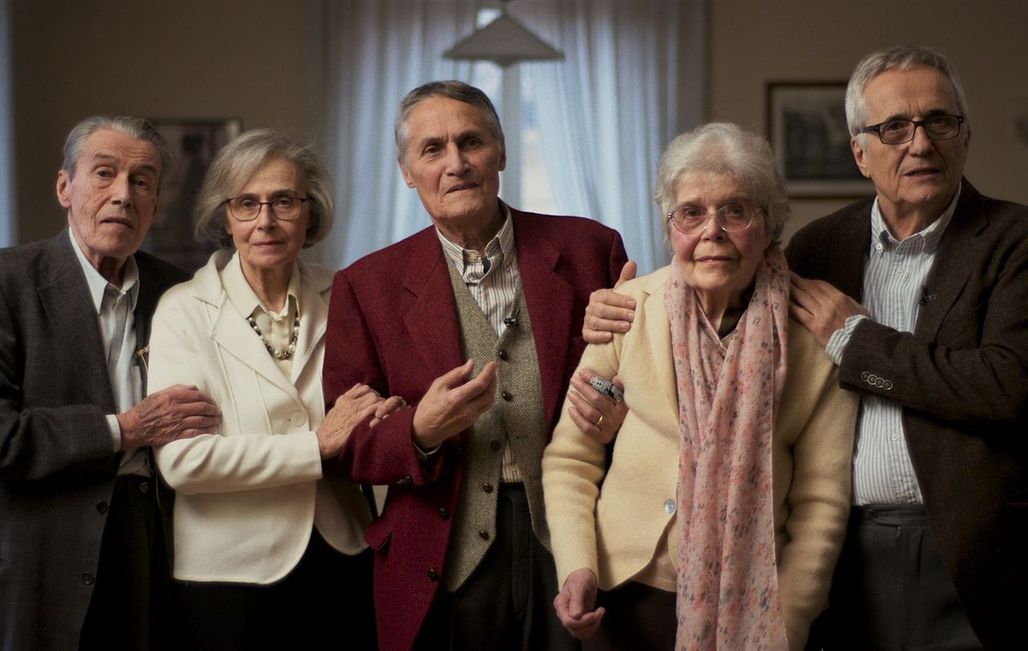
Marco Bellocchio investigates his family history in Marx can wait

In Marx può aspettare (Marx Can Wait), Marco Bellocchio tries to understand the suicide of his twin brother at the age of 29, which he never really got over. Mixing extracts from his films and conversations with his relatives, the filmmaker investigates the brother figure which has never stopped haunting his filmography.
What was the starting point for Marx Can Wait?
I was at a family reunion when I suddenly realised that a vital character in the mosaic was absent: Camillo, my late twin. I decided to interview some of my relatives and to share some memories of the tragedy with them. Some of the major witnesses in the film have died since then.
What was the common thread of the film?
While I was working on this family research, I realised it was possible to interweave their accounts with my experience as a filmmaker. That's how I had the idea of inserting clips of films which where indirectly linked to what happened. Even if he goes by other names, Camillo appears in my films. Those sequences were very valuable because they allowed me to create the essence of Marx Can Wait.
Why did it seem necessary to make this film at this point in your life as a man and as a filmmaker?
I felt it was the right moment to hand this story on to the next generations of my family. I don't believe in eternal life, or in the afterlife, and if I didn't make it now, there was a chance I would never do it at all! It wasn't so much a debt owed to my brother Camillo, but a need to bear witness, to tell the story, to interpret this personal tragedy that has been a source of pain throughout my life. I made it because I felt it was urgent to do so.
How did you work with your relatives?
In a very free way. The structure and the storyline grew up through the process of doing the work. The first scene in the film, of the reunion gathered around my father, dates back to five years ago. When I showed them the first version, I felt they were very touched. There have been no complaints, just a very strong shared emotion between us.
Why was it important for you to appear on screen?
For once, it was necessary for me not to hide. I felt that in order to convey this tragedy in all its depth, it was important that I appear in the foreground as well, and not behind the camera. The experience became more extreme, more complete as a consequence.
What did you learn about yourself in making this film?
I understood why I never knew how to answer the central question of this film: why didn't I notice earlier the great pain my twin was suffering? It's a question which has become a torment for me, even if I didn't bear any responsibility for his death.
Music is very important in Marx Can Wait.
The compositions of the great Ezio Bosso accompany almost the entire film. His music was extremely important because it I believe it complements perfectly the pain which runs through this family work. The choice of compositions was made using a sort of intuition and also by coincidence. Along with my wife, who is my editor, we carried out a very major piece of restructuring work at the editing stage, which was very slow. But it was a very crucial step for the film.
How do you feel about the honorary Palme d’or which the Festival de Cannes presented to you?
Very happy and satisfied, even if it was completely unexpected. Thanks to my experience, I approach my work with more certainty and calm these days than I did when I started out. But I am very happy, because I nurture the hope of continuing to make films for as long as possible, and getting such weighty recognition will certainly be a very positive influence for whatever comes next.
It is an invitation to you to stop and look back at the road you've travelled…
My career path is long and varied. I covered many different terrains, and in a way I did that in order to experience discomfort and unpreparedness, which are two things which stimulate me. Marx Can Wait is yet another new proposition. It's a family film which resembles some episodes in my life without directly borrowing from it. To sum up, there's no shortage of work and as the Catholics say: "hope is health!"
What more do you want from the cinema?
That stories are born which fascinate me, surprise me and shake me up, whether they come from the past or the present. Because the most important thing is the stories we tell! I also like it when they are more simple, more anecdotal. Nothing and no one has ever forced me to make films. But if there are stories which excite me, I make use of them.


